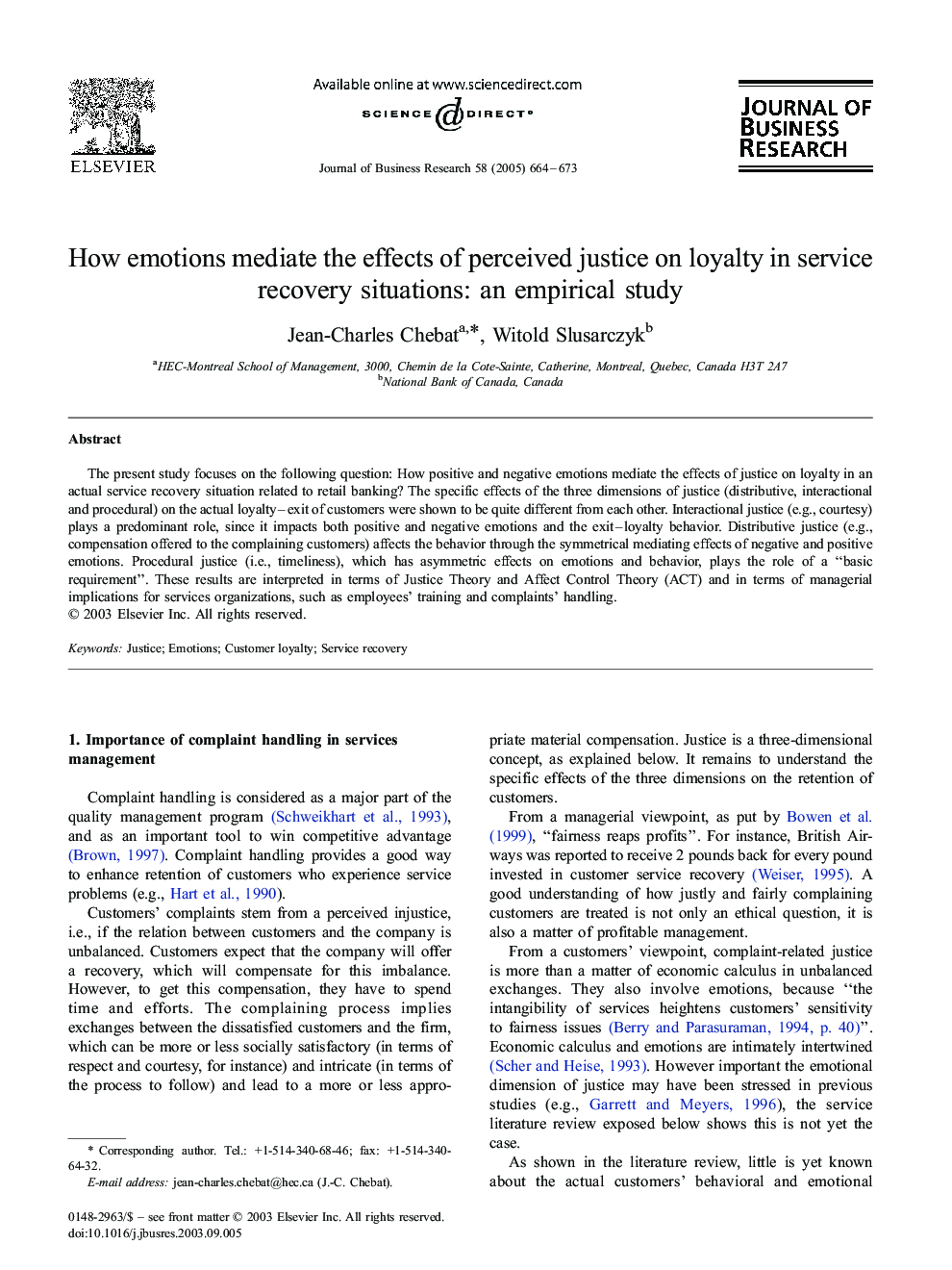| Article ID | Journal | Published Year | Pages | File Type |
|---|---|---|---|---|
| 10493221 | Journal of Business Research | 2005 | 10 Pages |
Abstract
The present study focuses on the following question: How positive and negative emotions mediate the effects of justice on loyalty in an actual service recovery situation related to retail banking? The specific effects of the three dimensions of justice (distributive, interactional and procedural) on the actual loyalty-exit of customers were shown to be quite different from each other. Interactional justice (e.g., courtesy) plays a predominant role, since it impacts both positive and negative emotions and the exit-loyalty behavior. Distributive justice (e.g., compensation offered to the complaining customers) affects the behavior through the symmetrical mediating effects of negative and positive emotions. Procedural justice (i.e., timeliness), which has asymmetric effects on emotions and behavior, plays the role of a “basic requirement”. These results are interpreted in terms of Justice Theory and Affect Control Theory (ACT) and in terms of managerial implications for services organizations, such as employees' training and complaints' handling.
Related Topics
Social Sciences and Humanities
Business, Management and Accounting
Business and International Management
Authors
Jean-Charles Chebat, Witold Slusarczyk,
